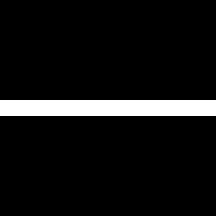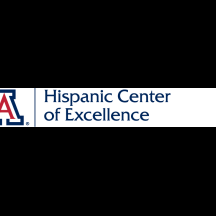Designed to increase the number of health sciences researchers, educators and practitioners from diverse backgrounds and to create awareness of health inequities, the University of Arizona Health Sciences’ summer programs get started June 4.
The four highly competitive, health professions summer training programs, AZ – PRIDE, BLAISER, FRONTERA and Med-Start, are led by the University of Arizona Health Sciences Office of Diversity and Inclusion. Enrollment in the programs is open to high school students, undergraduate and graduate students and health sciences academic professionals locally and throughout the United States.
UA Senior Vice Presid ent for Health Sciences Michael D. Dake, MD, will provide remarks during the opening ceremony on Monday, June 4, 8- 9 a.m., in Kiewit Auditorium, UA Cancer Center, 1515 N. Campbell Ave, Tucson.
ent for Health Sciences Michael D. Dake, MD, will provide remarks during the opening ceremony on Monday, June 4, 8- 9 a.m., in Kiewit Auditorium, UA Cancer Center, 1515 N. Campbell Ave, Tucson.
Students will be welcomed by Francisco Moreno, MD, associate vice president of diversity and inclusion and professor of psychiatry; Leigh Neumayer, MD, MS, FACS, interim executive dean of the UA College of Medicine – Tucson and head of the UA Department of Surgery; Sally Reel, PhD, RN, FNP, BC, FAAN, FAANP, associate vice president for health sciences interprofessional education, collaboration and community engagement; and Jorge Gomez, MD, PhD, assistant vice president for translational research in special populations and director of the BLAISER program. Lydia Kennedy, MEd, director of the UA Health Sciences Office of Diversity and Inclusion, will serve as master of ceremonies.
The UAHS Office of Diversity and Inclusion summer programs seek to recruit and ultimately graduate a more diverse student body dedicated to serving Arizona and the nation’s most at-risk and underserved populations. The programs represent a campus-wide commitment for diversity and inclusion and to improve the health of underserved populations.
UAHS faculty members serve as mentors to these summer scholars and provide research opportunities in their labs to tackle some of health care’s most pressing challenges.
The following four programs join other UAHS summer programs hosted by the five UAHS colleges and departments in Phoenix and Tucson to increase awareness and recruit students into the health professions.
The AZ - PRIDE Program, now in its fourth year, was developed to provide training in the biomedical sciences for early-career academics who come from underrepresented minority backgrounds, including people living with disabilities. Funded by a $1.25 million National Institutes of Health grant. Junior faculty members, recruited from universities throughout the nation, train with UAHS faculty mentors for one year. While training at UAHS, they gain expertise from some of the nation’s top physician-scientists in the fields of heart, lung, blood and sleep disorders, with the aim to increase the number of underrepresented experts in health disparities research.
The BLAISER Program (Border Latino and American Indian Summer Exposure to Research), also now in its fourth year, works to address health disparities in Arizona’s ethnically diverse and fast-growing communities. The 10-week, paid undergraduate research experience provides an extraordinary laboratory training opportunity, pairing the student scholars with preeminent faculty researchers at UAHS. BLAISER students benefit from the support and community-based immersive training opportunities offered by the Arizona Area Health Education Centers. BLAISER is designed to help underrepresented students, including Latino, Native American and African American undergraduate juniors and seniors, become nationally competitive medical school, health professions and biosciences-focused graduate school applicants.
The FRONTERA Summer Internship Program (Focusing Research on the Border Area), provides undergraduate and graduate students opportunities to prepare for medical school with a hands-on research experience and an increased understanding of public health disparities in the U.S.-Mexico border region. Participants are matched with UA faculty mentors engaged in biomedical and public health research that has an impact on border communities. They develop an in-depth understanding of the pathway to medical school, including study and test-taking skills, preparations for the MCAT and drafting a personal statement. Students also travel to border communities, visit health-care facilities and public health agencies on both sides of the U.S.-Mexico border and participate in service-learning activities. FRONTERA collaborates with the UAHS Center for Border Health Disparities Research to increase opportunities for undergraduate and graduate students in the health sciences to improve health and wellbeing along the U.S.-Mexico border.
The Med-Start program, established in 1969, has two goals: to address the critical shortage of a diverse health-care workforce and to provide high school juniors opportunities to explore health careers and college opportunities to successfully reach their academic and career goals. The students take an English composition class and an introductory to chemistry lab and learn about college success strategies in structured “College 101” workshops. In addition to exploring health careers, students participate in interactive presentations throughout UAHS, learning skills needed in health professions, such as responding to trauma incidents, treating fractures and neck and spine injuries, and learning dissection and suturing skills. Students also benefit from the support and community based immersive training opportunities offered by the Arizona Area Health Education Centers.
To learn more about UAHS Diversity and Inclusion programs, please visit: diversity.uahs.arizona.edu



